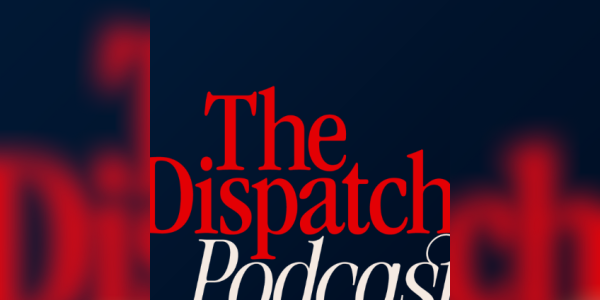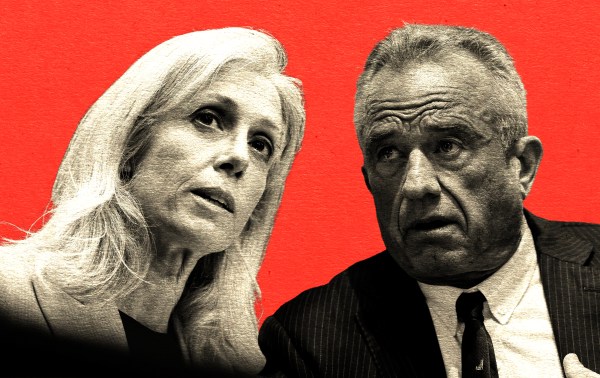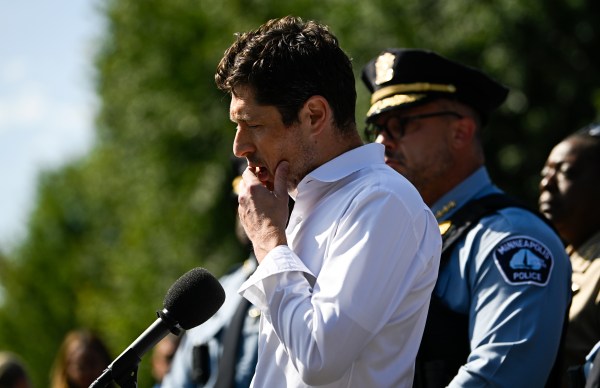As the coronavirus's Delta variant rips through (mainly) the Southeastern United States, two things are becoming clear at once. First, amidst the dark clouds of continued disease, there is the silver lining of an increased number of vaccines. After hitting a weekly low in early July, the pace has picked up to an average of almost 900,000 vaccinations a day. Through persuasion and mandates, America is chipping away at vaccine reluctance.
At the same time, however, the remaining vaccine holdouts are growing more extreme, and significant parts of the Christian Right are enabling, excusing, and validating Evangelical behavior that is gravely wrong and dangerous to the lives and health of their fellow citizens.
For example, there is a scramble by Christian Americans to seek “religious exemptions” from employer vaccine mandates. I’ve received correspondence from Christian religious liberty ministries who report a sharp rise in requests for legal assistance to secure religious exemptions. One ministry indicated in an email to affiliated attorneys that it had been “inundated by requests” for help. A pastor in a large church in California has promised to hand out “religious exemption forms” to anyone who attends the church and asks.
On Friday the National Religious Broadcasters, an umbrella association of roughly 1,100 member associations, abruptly fired its senior vice president of communications, my friend Daniel Darling, because Darling appeared on MSNBC’s “Morning Joe” to discuss why he got vaccinated and to try to allay Christian fears about the vaccine. He lost his job even though he was remarkably gracious in his comments. He defended Evangelical distrust of institutions and merely urged Christians “to talk to their doctor and really consider [the vaccine], just because we just don’t want to see anyone else unnecessarily die of this lethal virus.”
Dan was fired for violating an alleged NRB policy of “neutrality” towards the COVID vaccine. Yes, neutrality. Towards a vaccine that offers a lifeline out of a pandemic that has slain more than 650,000 Americans.
Earlier last week, the popular Christian pundit and podcaster Matt Walsh launched an extended tirade against South Dakota governor Kristi Noem. You can watch it below:
While Walsh’s comments about Noem’s appearance attracted the most attention, the direct reason for his anger was more notable. He was angry that Noem respects the liberty of private businesses to impose vaccine mandates to protect the lives and health of their employees. And he wasn't speaking only for himself. Legions of Christians share his rage.
As we approach nine months of vaccine availability and nine months of flood-the-zone coverage of vaccine safety and efficacy, it is clear that much (though certainly not all) of our remaining refusal problem is not one of information but one of moral formation itself. The very moral framework of millions of our fellow citizens—the way in which they understand the balance between liberty and responsibility—is gravely skewed.
To understand the skew, it’s first necessary to understand the proper balance, and while we have vaccine endorsements from Christian leaders from across the Catholic/Protestant spectrum, we also have guidance from church fathers—individuals who no one can claim have caved to some “establishment” or are motivated by supposed invites to mythical beltway “cocktail parties.” For example, read these famous words from Martin Luther, written during a plague in his own time:
Therefore I shall ask God mercifully to protect us. Then I shall fumigate, help purify the air, administer medicine, and take it. I shall avoid places and persons where my presence is not needed in order not to become contaminated and thus perchance infect and pollute others, and so cause their death as a result of my negligence. If God should wish to take me, he will surely find me and I have done what he has expected of me and so I am not responsible for either my own death or the death of others. If my neighbor needs me, however, I shall not avoid place or person but will go freely, as stated above. See, this is such a God-fearing faith because it is neither brash nor foolhardy and does not tempt God.
The balance is clear. It is incumbent on the Christian to take care of themselves, including by taking medicine “in order not to become contaminated” (a nice definition of a vaccine before vaccines were invented). To the extent that he or she takes risks, those risks should be on behalf of others. As a person created in the image of God, taking care of yourself is an independent good. Taking care of yourself so that you can care for others is an even nobler good.
Christian vaccine refusal not only rejects self-care, it enhances risks to innocent and vulnerable neighbors. Even vaccinated people can catch relatively rare breakthrough cases. And every person—regardless of vaccination status—is vulnerable to the strains placed on a region’s hospitals when COVID runs rampant.
I also fear that the relentless right-wing political focus on religious liberty has obscured two realities—that our liberties have limits when they collide with the rights of others, and that the exercise of our liberty carries with it profound moral responsibility.
The idea that liberty has limits is inherent in the American social compact. Think of our founding Declaration—“that all men are created equal, that they are endowed by their Creator with certain unalienable Rights, that among these are Life, Liberty and the pursuit of Happiness.” Through more than two centuries of controversy and progress, our classical liberal legal system is learning to harmonize these three unalienable rights.
I have liberty, yes, but my liberty does not extend to taking or endangering your life (this is one reason why Roe v. Wade is such a profound violation of our founding principles). In addition, my liberty doesn’t extend to materially impairing your ability to pursue happiness. Even if COVID doesn’t kill, the frequent infliction of painful, long term illness can sap a person of hope and joy and deprive sick Americans of economic opportunity and the psychological benefits of social participation in American life.
In more prosaic legal terms, the state is able to regulate even the strongest of liberties when it possesses a “compelling governmental interest” and places those regulations in proper limits. And what are some legally recognized “compelling” interests? Foremost among them are protections for life and health.
By contrast, what does the anti-vax Christian seek? The liberty to risk both the lives of others (through the physical danger of COVID and/or the danger of swamped medical facilities) and their pursuit of happiness (through the continued physical, economic, and social strains of a pandemic extended in part but the choices of anti-vax citizens).
Such an extreme and dangerous assertion of individual autonomy at the expense of colleagues and neighbors is not a legitimate exercise of religious liberty. Even those statutes protecting religious employees from discrimination and requiring workplace accommodations of religious practices do not require such accommodations when they impose an “undue hardship” on employers.
Granting an employee the “right” to spread a potentially deadly disease to employees and customers is the very definition of imposing an “undue hardship.”
And let’s be honest and clear. The majority of Christians seeking religious exemptions are using religion as a mere pretext for their real concern—be it fear of the shot or the simple desire to do what they want. In speaking to my religious liberty lawyer friends, the vast majority of those requesting a religious exemption to the COVID vaccine don’t come from the tiny religious sects that historically reject conventional medicine. In fact, they don’t even object to all vaccines, just this vaccine. A sincere desire not to take a shot does not equate with a sincere expression of orthodox Christian faith.
Writing in his newsletter, my friend Russell Moore put it well:
Someone may resent having to wear a mask on a Disney cruise. Someone might think the local public school system is too demanding on mask policies with young children. A nurse might resent having to have a vaccine to work in her hospital because she doesn’t trust the injection. Those are all legitimate points of debate, I suppose, but they are not religious liberty matters. Thinking that a mask restricts your breathing the way God intended or that FDA approval of the vaccine didn’t meet your standards or whatever—these are not religious liberty questions.
Moreover, I’m quite concerned that long-standing, justified Christian concerns for religious liberty have inadvertently created a sense of religious entitlement that obscures the desperate need for religious responsibility. For the Christian believer, the pursuit of freedom is inseparable from the pursuit of virtue. We do not seek liberty simply to satisfy our desires or to appease our fears. In fact, when we pursue the freedom to make our neighbors sick, we violate the social compact and undermine our moral standing in politics, law, and culture. Christian libertinism becomes a long-term threat to religious liberty itself.
Our founders recognized the threat of libertinism to liberty. “Our Constitution,” John Adams wrote, “was made only for a moral and religious people. It is wholly inadequate to the governance of any other.” In fact, a sufficient degree of vice would, Adams argued, “break the strongest cords of our Constitution as a Whale goes through a Net.”
And what does the virtuous exercise of liberty look like? Ironically enough, one example is the very exercise of liberty that Matt Walsh condemned—the liberty of private corporations to impose vaccine mandates. When a workplace reasonably perceives a threat to the lives and health of its workers and customers and imposes a mandate, it is illustrating exactly how an institution can exercise its liberty to pursue virtue. Its exercise of liberty protects life and the pursuit of happiness.
This essay isn’t designed to answer all the various misinformation and conspiracy-based objections to vaccines. The internet is awash with fact checks and explainers (including explainers aimed directly at Christians) designed to rebut virtually every anti-vax argument ever shared. But it is increasingly clear that many of the remaining holdouts need their hearts to change before their minds will change. It’s their moral framework that’s broken, and when that framework is broken, reason and virtue have difficulty penetrating a hardened heart.
The proper framework is easy to articulate, yet hard to create. Take prudent measures to protect yourself. When you choose to take risks, take risks for others. And always recognize that liberty isn’t license. Believers should seek freedom to pursue virtue, not to indulge their desires or appease their fears.
I should be clear that millions upon millions of American Evangelicals understand these principles and have taken them to heart. But a disproportionate number have not. In March I wrote to warn that Christian vaccine hesitancy was a looming national problem. That which we have feared has come to pass. Indeed, as both the geographic concentrations of unvaxxed Americans and the survey data demonstrate, Christian vaccine refusal is helping sustain this pandemic:
Now is the time to take a clear stand. Not in a way that mocks or condescends, but one can be firm while also being respectful. As the Apostle Paul told Timothy, “God has not given us a spirit of fear, but one of power, love, and sound judgment.” The power is not political power, but the power of God over the fears of man. The love is for God and for our neighbor. And sound judgment should help us separate lies from truth and tell us that no argument for liberty should trump our responsibility to spare our nation and our neighbors and finally take the vaccine.
One last thing …
I was moved by Christian Schneider’s piece yesterday in The Dispatch about how the people of Tomah, Wisconsin—a small town near Fort McCoy—were preparing to receive and welcome the Afghan refugees who were arriving at the fort. While we’ve seen failure and incompetence these past days, we’ve also seen courage and love. This song, by Sandra McCracken, seems right for this moment, when so many thousands of friends and allies are fleeing their homes and arriving in a strange new land:







Please note that we at The Dispatch hold ourselves, our work, and our commenters to a higher standard than other places on the internet. We welcome comments that foster genuine debate or discussion—including comments critical of us or our work—but responses that include ad hominem attacks on fellow Dispatch members or are intended to stoke fear and anger may be moderated.
With your membership, you only have the ability to comment on The Morning Dispatch articles. Consider upgrading to join the conversation everywhere.